
Theodore Herman Albert Dreiser was an American novelist and journalist of the naturalist school. His novels often featured main characters who succeeded at their objectives despite a lack of a firm moral code, and literary situations that more closely resemble studies of nature than tales of choice and agency. Dreiser's best known novels include Sister Carrie (1900) and An American Tragedy (1925).

Winesburg, Ohio is a 1919 short story cycle by the American author Sherwood Anderson. The work is structured around the life of protagonist George Willard, from the time he was a child to his growing independence and ultimate abandonment of Winesburg as a young man. It is set in the fictional town of Winesburg, Ohio, which is loosely based on Anderson's childhood memories of Clyde, Ohio.

Sherwood Anderson was an American novelist and short story writer, known for subjective and self-revealing works. Self-educated, he rose to become a successful copywriter and business owner in Cleveland and Elyria, Ohio. In 1912, Anderson had a nervous breakdown that led him to abandon his business and family to become a writer.

Hendrik Willem van Loon was a Dutch-American historian, journalist, and children's book author.

Edgar Evertson Saltus was an American writer known for his highly refined prose style. His works paralleled those by European decadent authors such as Joris-Karl Huysmans, Gabriele D'Annunzio and Oscar Wilde.

The Torrents of Spring is a novella written by Ernest Hemingway, published in 1926. Subtitled "A Romantic Novel in Honor of the Passing of a Great Race", Hemingway used the work as a spoof of the world of writers. It is Hemingway's first long work and was written as a parody of Sherwood Anderson's Dark Laughter.
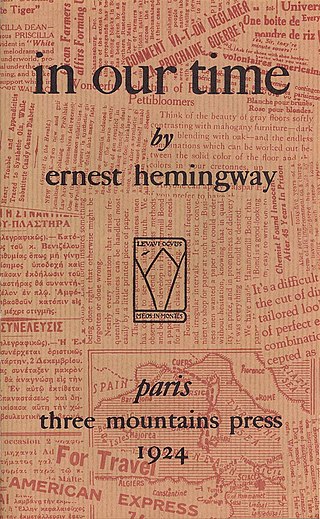
In Our Time is the title of Ernest Hemingway's first collection of short stories, published in 1925 by Boni & Liveright, New York, and of a collection of vignettes published in 1924 in France titled in our time. Its title is derived from the English Book of Common Prayer, "Give peace in our time, O Lord".
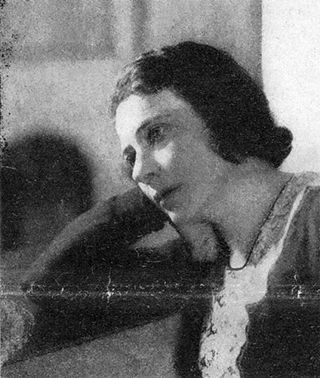
Sarah Gertrude Millin, née Liebson, was a South African author.
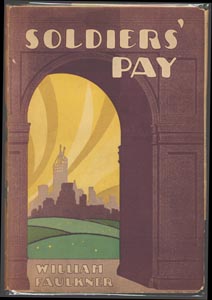
Soldiers' Pay is the first novel published by the American author William Faulkner. It was originally published by Boni & Liveright on February 25, 1926. It is unclear if Soldiers' Pay is the first novel written by Faulkner. It is however the first novel published by the author. Faulkner was working on two manuscripts while finishing Soldiers' Pay.
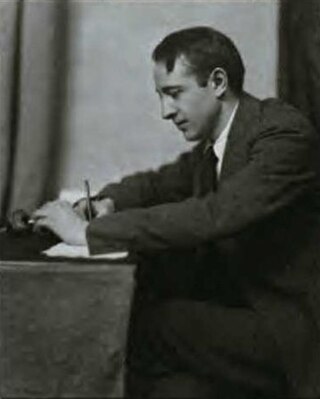
Floyd James Dell was an American newspaper and magazine editor, literary critic, novelist, playwright, and poet. Dell has been called "one of the most flamboyant, versatile and influential American Men of Letters of the first third of the 20th Century." In Chicago, he was editor of the nationally syndicated Friday Literary Review. As editor and critic, Dell's influence is seen in the work of many major American writers from the first half of the 20th century. A lifelong poet, he was also a best-selling author, as well as a playwright whose hit Broadway comedy, Little Accident (1928), was made into a Hollywood movie.

Waldo David Frank was an American novelist, historian, political activist, and literary critic, who wrote extensively for The New Yorker and The New Republic during the 1920s and 1930s. Frank is best known for his studies of Spanish and Latin American literature and culture and his work is regarded as an intellectual bridge between the two continents.

Julius John Lankes (1884–1960) was an illustrator, a woodcut print artist, author, and college professor.

Death in the Woods is a 1933 short story collection by Sherwood Anderson. It was the last of Anderson's books to be published by Boni & Liveright before the firm's financial collapse. Most of the stories in the collection were previously published either in magazines and books. According to John Earl Bassett, most of the stories in Death in the Woods were written between 1926 and 1930 with four preceding that time and one following.
Joseph Lewis French (1858–1936) was a novelist, editor, poet and newspaper man. The New York Times noted in 1925 that he may be "the most industrious anthologist of his time." He is known for his popular themed collections, and published more than twenty-five books between 1918 and his death in 1936. He initiated two magazines, The New West and The Wave. Afterward he worked for newspapers "across the country" contributing poetry and articles. He struggled financially, and during 1927 the New York Graphic, a daily tabloid, published an autobiographical article they convinced him to write, entitled "I'm Starving – Yet I'm in Who's Who as the Author of 27 Famous Books."

Boni & Liveright is an American trade book publisher established in 1917 in New York City by Albert Boni and Horace Liveright. Over the next sixteen years the firm, which changed its name to Horace Liveright, Inc., in 1928 and then Liveright, Inc., in 1931, published over a thousand books. Before its bankruptcy in 1933 and subsequent reorganization as Liveright Publishing Corporation, Inc., it had achieved considerable notoriety for editorial acumen, brash marketing, and challenge to contemporary obscenity and censorship laws. Their logo is of a cowled monk.

Marching Men is a 1917 novel by American author Sherwood Anderson. Published by John Lane, the novel is Anderson's second book; the first being the 1916 novel Windy McPherson's Son. Marching Men is the story of Norman "Beaut" McGregor, a young man discontented with the powerlessness and lack of personal ambition among the miners of his hometown. After moving to Chicago he discovers his purpose is to empower workers by having them march in unison. Major themes of the novel include the organization of laborers, eradication of disorder, and the role of the exceptional man in society. The latter theme led post-World War II critics to compare Anderson's militaristic approach to homosocial order and the fascists of the War's Axis powers.

Windy McPherson's Son is a 1916 novel by American author Sherwood Anderson. It was published by John Lane as part of a three book contract. Windy McPherson's Son is Sherwood Anderson's first novel.

Horses and Men is a 1923 short story collection by the American author Sherwood Anderson. It was Anderson's fourth book to be published by B.W. Huebsch and his third collection after the successful short story cycle Winesburg, Ohio. The book was dedicated to writer Theodore Dreiser and included a two-page essay about him titled "Dreiser" in addition to a foreword and nine stories.
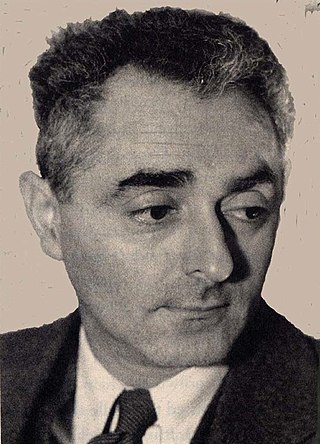
Albert Boni was co-founder of the publishing company Boni & Liveright and a pioneering publisher in paperbacks and book clubs.
Lester Cohen was an American novelist, screenwriter and author of non-fiction. He is best known as the author of the novels Sweepings and Coming Home, and the screen play for Of Human Bondage.


















